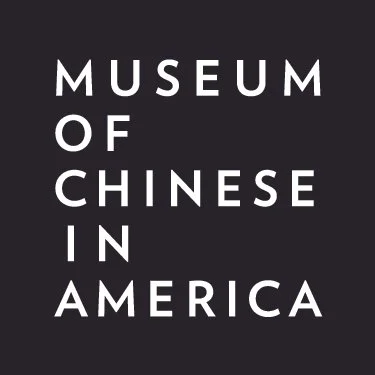Pan Asian Repertory Theatre &
Museum of Chinese in America
present
Written & Performed by
Richard Chang (张德胜)
About Richard Chang (张德胜)
Richard Chang is a performer-playwright-journalist who seeks to tell neglected stories in entertaining ways that authentically reflect America’s diversity. His works reflect his background in Asian and Western theater, dance and opera; puppetry; and improv comedy. His play, Citizen Wong, premiered at Pan Asian Repertory Theatre in 2022, and soon morphed into the Citizen Wong Project to resurrect and celebrate Wong Chin Foo (1847-1898), the first Asian-American civil rights leader. The project’s platforms now also include solo performances, a short film, and a proposed documentary, feature film and TV series, and an upcoming comic developed with AA CARES at San Francisco State University.
Richard’s other acting credits at Pan Asian Rep include The Last Empress and Legend of the White Snake. A founding member of Chinese Theatre Works, he has co-written, directed or performed in Climbing the Gold Mountain, Shadow White Snake, Toy Theater Peony Pavilion and Little Red Riding Hood. Screen roles include Ping Chong & Co’s “Chinoiserie Redux”; “New York, I Love You,” “Windhorse,” “Saving Face,” “Never Forever,” “Chasing America,” “Return to Paradise”; and NBC-TV series “Kidnapped.”
Richard has danced with the New York Dance Theatre, Singapore Ballet Company, Old Dominion Ballet, Kathak Dance Ensemble and Zhongmei Dance Company. As a classically trained bass-baritone, he has sung solo at Weill Recital Hall and Bechstein Hall.
His work has been awarded grants by the National Endowment for the Arts, New York State Council on the Arts, New York Foundation for the Arts, Queens Council on the Arts, Puffin Foundation. He has received an Urban Artist Initiative/New York City fellowship.
About Pan Asian Repertory Theatre
Pan Asian Repertory Theatre is the pioneer, award-winning Asian American theatre company on the East Coast and the second most veteran in the nation. With the help of the late Ellen Stewart and core Asian American artists at La Mama ETC, Tisa Chang founded Pan Asian Rep in 1977 with the vision that Asian American artists can equally follow their artistic aspirations to reach the zenith of American Theatre.
Glossary
In Goy Vey! Jackie Sun assumes that the Yiddish words that Papa says on his tapes are Chinese, as spoken by a Chinese American. While this may seem far-fetched, some words and expressions actually sound alike in both languages and have similar connotations.
Bar Mitzvah – Jewish rite of passage for boys when they turn 13, like Confirmation for Catholics. Skull caps, called yarmulkes or kippahs, are often given to guests at parties, stamped on the inside with “Bar Mitzvah,” the boy’s name and date. Jackie thinks they are Bar Mitzvah brand cloth frisbees, with the individual maker’s name and date of manufacture.
Chicken soup – The “Jewish penicillin” prescribed by Jewish mothers for every ailment. Chinese mothers do the same.
Goy – Yiddish for anyone who’s not Jewish. It is also the Cantonese pronunciation of the Chinese word for demon or ghost – a term used to describe anyone who's not Chinese. This may be because the first foreigners in China looked like demons to the locals.
Kosher – Food that conforms to Jewish religious law is kosher, or “good to eat.” Similar to halal for Muslims. Jackie thinks kosher is an American term that combines the Chinese words kaoshi (pronounced “cow-sher”), which means test, and hao chi (pronounced “how-cher”), which means good to eat. So, to Jackie, any food that is kosher has passed the Chinese good-taste test.
Megillah – Yiddish for a longwinded story. To Jackie, it sounds like the Cantonese expression “mutt goy la?” -- which literally means “what the devil?” (as in “What the devil are you talking about?” when someone carries on and on about something). When a person insists on telling the whole longwinded story, the tale becomes a gontzeh megillah or the whole shmeer, because gong sai in Cantonese means “to tell everything.”
Oy – Yiddish or German for “Oh!” Oy is often paired with Vey, which means “woe.” To Jackie, this is clearly a variation of the Chinese exclamation Aiyah!
Shtup – To shtup, in Yiddish, is to commit the act of begatting a child. Jackie thinks it’s possibly derived from the Cantonese sei (which means to die, or to keep doing something) and tup (which means to hammer). As with many expressive terms, shtup is probably onomatopeic, i.e. the word sounds just like the action.
The Museum of Chinese in America (MOCA) is dedicated to preserving, illuminating, and celebrating the rich history and contributions of Chinese in America. By fostering understanding and greater recognition of our experiences, we endeavor to inspire and connect all Americans.



